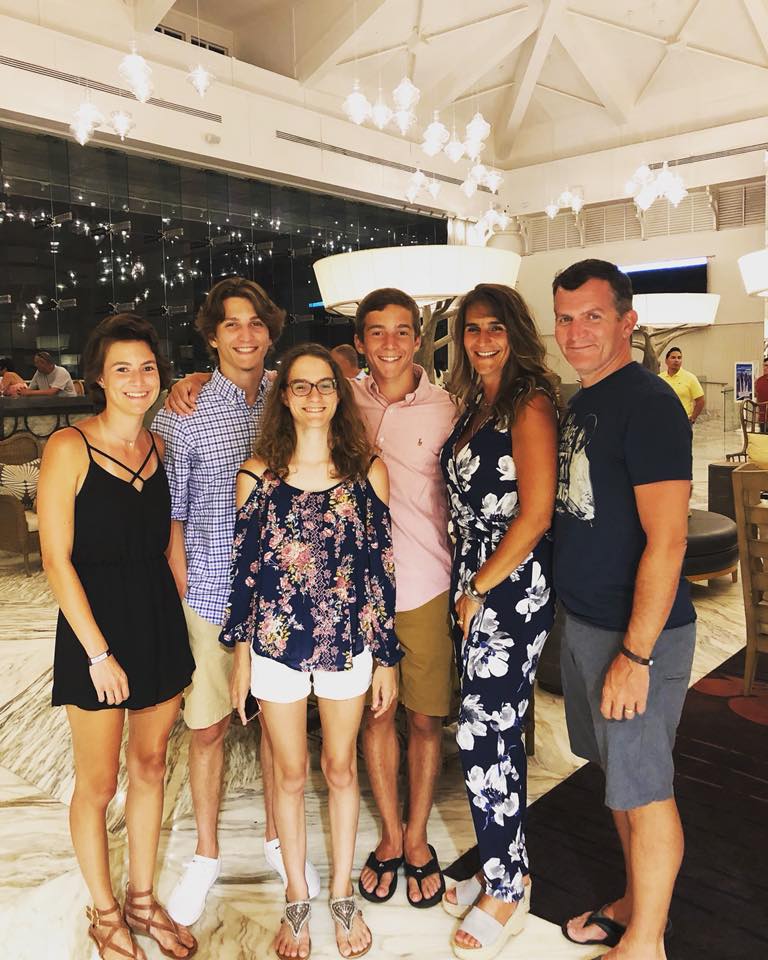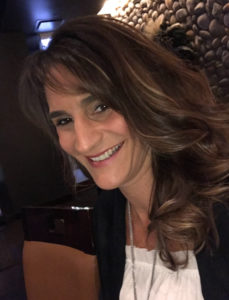by Karri Friedenberger
When something traumatic happens to a person or a family you often hear about them adjusting to their “new normal.” One finds their new rhythm in life, adjusting their sails and moving forward.
In February 2001 our twin girls, Hanna and Rachel, were born at 25 weeks gestation with little warning. I remember thinking life would get back to normal just as soon as we got our babies home from the NICU. They would grow, get healthier, come home and my husband Kirk and I could get back to having fun with our then two-year-old son, Ian, and our new baby girls.
Twelve weeks later our girls are were home from the NICU, we had a rambunctious two-year-old and Kirk had returned to work full time. We all were adjusting and settling in. Life was getting back to normal. Or so I thought. Our babies were home from the NICU, but we were quickly realizing that our path had simply changed direction and life was not back to normal. The girls were still medically fragile and developmentally delayed. That translated to a busy schedule of doctors appointments, as well as early intervention therapists coming to our home three times a week. We lived by a strict schedule of feeding, medicating and appointments. We were also making our best attempt at giving Ian some normalcy in playdates and walks to his favorite park. I continued to tell myself that normalcy would come. Right at the end of this new normal we were living in.
When the girls were eighteen months old, we were longing for another baby. After a lot of soul searching and an appointment with my medical team we decided to go for it. We were all hopeful for an uncomplicated pregnancy because our first son, a singleton pregnancy, was born at full term. We were pregnant two months later. Ian was in preschool, the girls were growing, continuing in therapies, but doing well. We had found a routine that worked for our home. Finally, normalcy.
Then at just 21 weeks into my pregnancy labor began and I was placed on full bedrest. We had a four-year-old, two-year-old twins, a dad who was working and a mom who wasn’t allowed out of bed at all. Once again we were adjusting to a life of uncertainty, and seeking to find our new normal. My mom moved from Pennsylvania to live with us to care for everyone until the baby was born. After thirteen weeks of bedrest, Will arrived, spending several hours in the NICU but ultimately coming home with me four days later. We had our family of six and had avoided a long NICU stay. Once again I told myself that we would finally be getting back to our normal life. The life we had when it was just Kirk, Ian and myself at home.
As time passed it became more clear that Rachel’s delays were far greater than we had imagined and she was likely going to need support services for a long time to come. Hanna’s lung complications weren’t improving either, resulting in many hospitalizations due to illness. The hope that the girls would outgrow illness and overcome delays was fading.
Often times NICU parents talk about waiting for the other shoe to fall after their baby is born early. The inevitable fallout of a premature birth. Every day since Hanna and Rachel were born I have been bracing myself for the other shoe to fall. And over the course of the last seventeen years the shoes have been falling at a depressing rate. The notion that one day life would return to normal was slowly slipping away.
Like many premature babies, our girls didn’t “catch up” and walk away from the NICU unscathed. Rachel has autism and suffers from severe anxiety and a major depressive disorder. The combination of these three diagnoses impacts her life every single day, which has led her to suicidal ideation and a recent suicide attempt. Hanna has also lived with chronic illness. She suffered severe lung complications and has two autoimmune disorders: alopecia totalis which causes her hair to fall out, and juvenile rheumatoid arthritis (JRA), causing pain and swelling in her joints. The girls have continually adjusted to each hurdle that has come their way with bravery and grace.
These constant and unpredictable events have had a significant impact on my life as well. I’ve always been a planner and struggle with spontaneity. I like to know what’s coming. When Hanna and Rachel were born fifteen weeks early my life felt very out of control. I was left feeling powerless and fearful of the entire situation. To survive my mantra became “I can’t change what is.” I just had to hold on and hope that in time the girls would be healthy and the NICU would be behind us. As they faced illness and therapy, I continued to tell myself that it would get better and they would eventually be healthy. When Rachel continued to struggle in preschool, I told myself she would mature and be just like her peers. Each time Hanna became alarmingly sick, I told myself her lungs would get better and she would overcome this. The first time Hanna’s hair fell out I told myself it was a fluke and the treatment option would make her hair grow and that would be the end of that. And then her hair fell out again and the realization of what her diagnosis truly meant began to set in. When she pointed out her fingers were “crooked” I told myself splints would fix them and we’d move forward. And then she received her JRA diagnosis.
For many years after each new diagnosis and illness, I would tell myself that we would adjust to a new normal. But how many new normals can one person have? For me, each time I adjusted to a new normal I felt like my old life, the life I once thought was normal was getting further and further away. I became angry at the constant need to have to adjust.
 After seventeen years of trying to hold everyone and everything together, I finally gave myself permission to admit I needed help. I needed a place to share all the scary and sad thoughts in my head. I needed to understand why I had this intense desire to keep my life and the lives of my family under control and prepared for the next shoe to fall. In one of our sessions my therapist asked me a question I had never really consider. She asked me what would happen if I weren’t prepared for another shoe. In asking that question she helped me realize that even when I was prepared shoes continued to fall. That my need for control hadn’t stopped any of these things from happening. I have been able to slowly let go and adopt a phrase that Kirk uses frequently: “We’ll figure it out.” Because that’s what we’ve been doing for so many years.
After seventeen years of trying to hold everyone and everything together, I finally gave myself permission to admit I needed help. I needed a place to share all the scary and sad thoughts in my head. I needed to understand why I had this intense desire to keep my life and the lives of my family under control and prepared for the next shoe to fall. In one of our sessions my therapist asked me a question I had never really consider. She asked me what would happen if I weren’t prepared for another shoe. In asking that question she helped me realize that even when I was prepared shoes continued to fall. That my need for control hadn’t stopped any of these things from happening. I have been able to slowly let go and adopt a phrase that Kirk uses frequently: “We’ll figure it out.” Because that’s what we’ve been doing for so many years.
Ultimately, she helped me to realize something even more profound. Each time I told myself I needed to adjust to our new normal, I was stuck in a place trying to find a way to control the situation. Every time this happened my anxiety intensified.
Everyone faces difficult times in life. Our family certainly has had more than our fair share. The realization I’ve come to is that there is no normal, there is just living. In giving up the need to place my life in a box labeled “normal,” I am finding peace.
Photos courtesy Karri Friedenberger
About Karri Friedenberger
 Karri Friedenberger lives in Chicago, IL with her husband, Kirk, and their four children: Ian (19yrs), twins Hanna and Rachel (17yrs) and Will (15yrs). Ian was born after her only full-term pregnancy. Hanna and Rachel were born at 25 weeks gestation due to PROM and spent 12 weeks in the NICU. Will was born at 36 weeks gestation, after 13 weeks of complete bed-rest due to preterm labor. It is because of each of her pregnancy experiences that she has dedicated her life to supporting NICU families.
Karri Friedenberger lives in Chicago, IL with her husband, Kirk, and their four children: Ian (19yrs), twins Hanna and Rachel (17yrs) and Will (15yrs). Ian was born after her only full-term pregnancy. Hanna and Rachel were born at 25 weeks gestation due to PROM and spent 12 weeks in the NICU. Will was born at 36 weeks gestation, after 13 weeks of complete bed-rest due to preterm labor. It is because of each of her pregnancy experiences that she has dedicated her life to supporting NICU families.
Karri serves as the Volunteer Engagement Chair for the Chicago Chapter Market Board of the March of Dimes for the last 3 years. She has also spent more than 14 years supporting NICU families through online communities, advocating at her state capital, as well as our nation’s capital, raising funds to support research to find the cause and cure of premature birth and raising awareness on the seriousness of preterm birth.
Karri has a B.S in Early Childhood Education from Pennsylvania State University. Before coming to Hand to Hold she spent the previous 19 years as a stay at home mom caring for her four children. Much of her time was spent caring for Hanna and Rachel and their special medical and developmental needs. It is because of her own experience as a NICU parent, as well as in raising two children with special needs that she brings the ability to understand how life after the NICU continues to bring challenges for many families resulting in a continued need for supports and access to resources.
When Karri isn’t working or volunteering for NICU families she enjoys spending time with her husband, cheering on her children in their various sports, working out, reading and spending time with friends.

